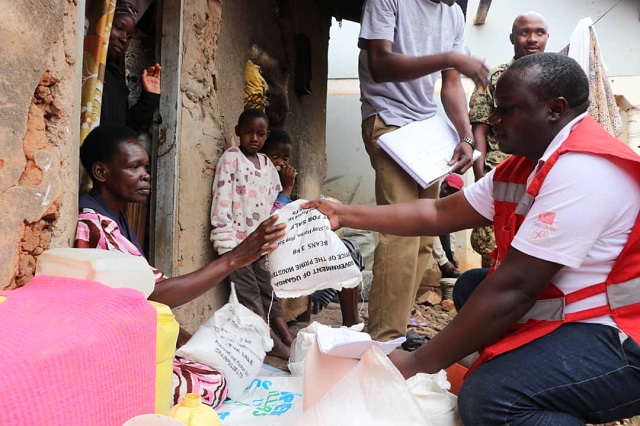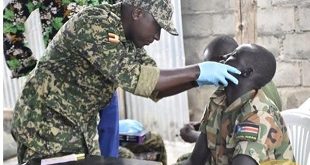
Kampala, Uganda | THE INDEPENDENT | The number of people seeking relief food support has overwhelmed local leaders in some slum areas of Kampala. People are stuck in their homes because of the 42 days nationwide lockdown imposed by the government to control the second wave of the COVID-19 pandemic, which has seen an escalation of infections.
Only selected people described as essential workers including those in agriculture, health, telecoms, media, banking and food vendors are currently operating. The lockdown has taken a toll on income earners since their businesses are closed. The government has promised through the Office of the Prime Minister to disburse some money to the affected families.
Recently, the Prime Minister Robinah Nabbanja said the government would send money to about 520,000 affected families through mobile money. At least Shillings 52 billion has been set aside for this purpose. She said they are working out modalities of disbursing the money to ensure it reaches the targeted beneficiaries.
However, the process has dragged on prompting the affected people to approach their leaders for support. Darwin Ssebaduka, the LC I chairperson Kitamanyangamba village, Kagugube Parish in Kampala central division expressed fears that some of his voters might die of hunger before COVID-19 kills them if the government continues delaying the disbursement of the relief support.
According to Ssebaduka, more than 30 people show up at his office on a daily basis seeking food relief. He says that he shared the little he had in the first three days of lockdown with the affected families but the numbers keep growing.
Ssebaduka indicates that more than 900 residents in his area mostly youths and self-employed people working in garages, washing bays, vendors and boda boda riders survive on daily income. He asks the government to consider expediting the release of the COVID-19 relief and if possible involve local leaders that deal with the people directly.
Ronald Muze, the LC I chairperson Kivulu 1 zone, says that many residents are not able to earn any income yet they have families to look after. Muze says his office has now turned into a begging center as people seek food relief while others call him for the same reason.
He asks the government to come to the rescue of the residents, noting that even those that were earning from vending food in the evening alias toninyira can no longer do so because of the extended nighttime curfew starting from 7 pm.
The previous curfew started at 9 pm. Rose Nakigozi, the Kibe zone Makerere three LC 1 woman representative, says the government needs to come down to the local people to witness how they are struggling to survive amidst the lockdown.
Nakigozi explains that the majority of the people who live in the slums cannot afford to sustain their families without daily income.
She notes that many people in her area are boda boda riders and single mothers vending food on roadsides targeting people returning home in the evening.
Sulah Busulwa, the LC I chairperson of Kibe zone says there is still need for the top government leadership to sensitize the masses about the COVID-19 pandemic to appreciate the need to stay home in whatever circumstances they are going through.
Busulwa says that people are more worried of hunger compared to the COVID-19 pandemic.
William Mukiibi is the LC I Kikoni A in Nankulabye. He says that as a leader, he is trying to play his part by ensuring that people adhere to the COVID-19 preventive measures. He however says it is becoming hard to explain to them how and when the government will send the relief support.
During the first lockdown in 2020, the government intervened through the Disaster Preparedness Ministry and distributed relief food worth Shillings 30 billion to over two million people believed to have lost income.
The money also covered the costs of coordination and door-to-door food relief distribution in Kampala Metropolitan areas.
*****
URN
 The Independent Uganda: You get the Truth we Pay the Price
The Independent Uganda: You get the Truth we Pay the Price



